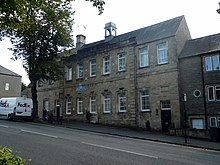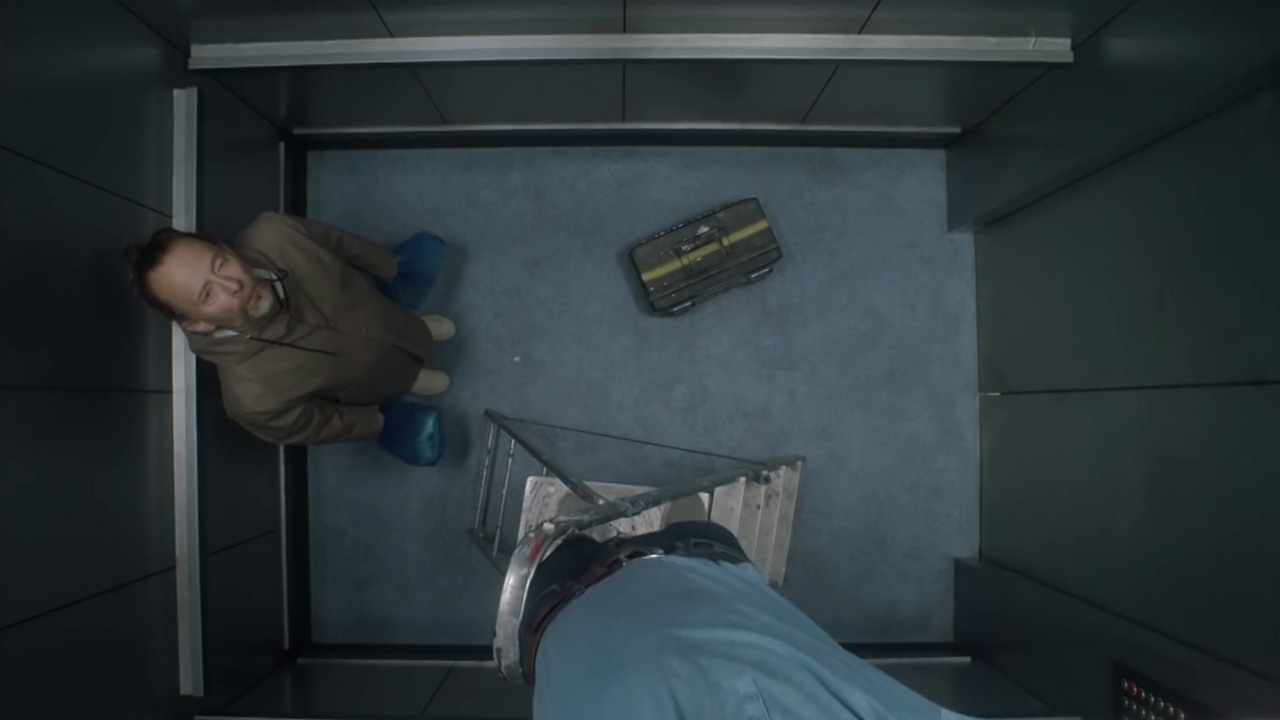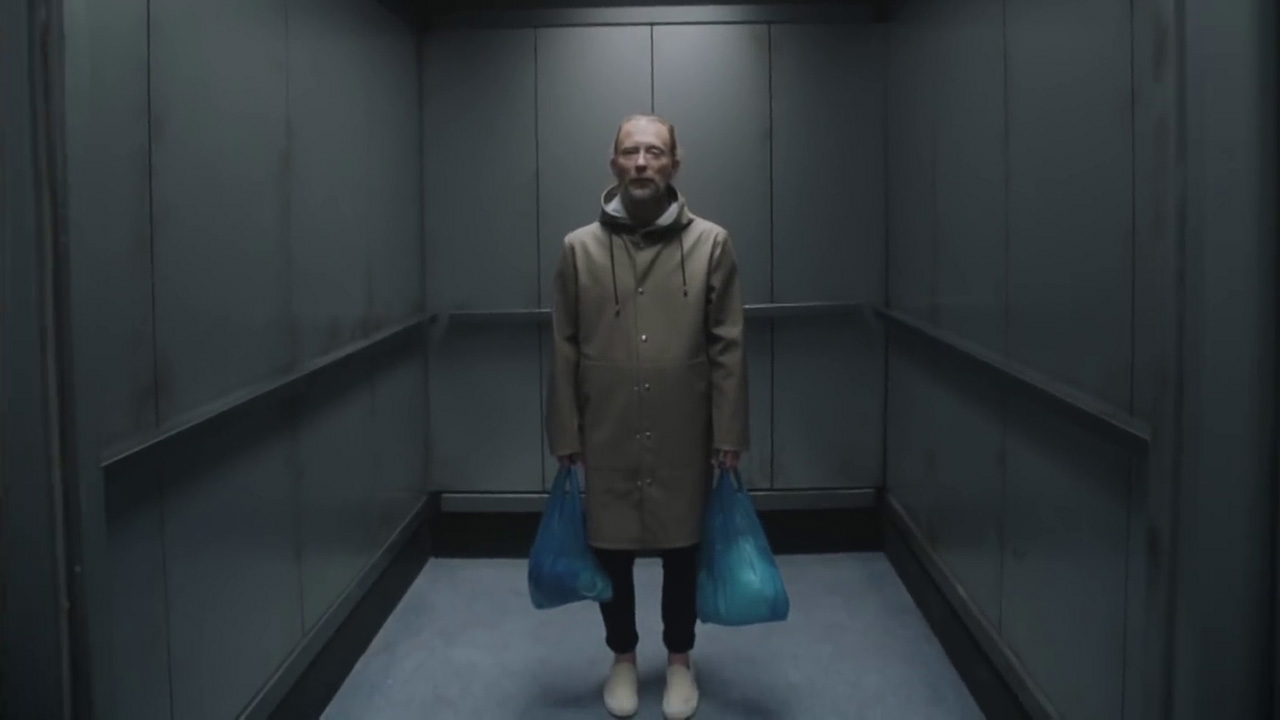Rui Cardo Suggestions presenta grandi classici e perle nascoste, versioni ufficiali e live ricercati.
Enjoy! 😉
Radiohead - Lift
Song
"Lift" is a song by the English rock band Radiohead released in 2017.
It was first performed in 1996; bootleg recordings were widely circulated, and it became a fan favourite. Radiohead recorded versions of "Lift" during the sessions for their third album, OK Computer (1997), but abandoned it. Guitarist Ed O'Brien said the band had felt pressured by its commercial potential, and drummer Philip Selway said it did not represent what Radiohead wanted to say at the time.
Critics described "Lift" as anthemic and "Britpop-like". In 2017, Radiohead released a version recorded during the OK Computer sessions on the reissue OKNOTOK 1997 2017, followed by a music video. It received positive reviews, though some critics found it inferior to the bootlegged performances. Further versions recorded during the OK Computer period were released on the 2019 compilation MiniDiscs [Hacked] and received more positive reviews.
History
Radiohead first performed "Lift" on March 14, 1996, at the Troubadour in West Hollywood. They performed it over 30 times that year while supporting Alanis Morissette on her Jagged Little Pill tour. Journalists noted "Lift" as a highlight and possible future single. According to guitarist Ed O'Brien, the audience responded warmly to the song: "Suddenly you'd see them get up and start grooving. It had this infectiousness." A bootleg recording was widely circulated, and "Lift" became a fan favourite.

Radiohead recorded "Lift" during the sessions for their third album, OK Computer (1997), but it went unreleased. According to drummer Philip Selway, the band felt it was "fey" and not "what we wanted to say about ourselves as a band at the time".In 1999, O'Brien dismissed it as "bogshite", and said the band were "very happy to leave [it] off the album ... There wasn't any stage where it was a key track for any of us."
Asked why the song could have worked in live performance but not in the studio, O'Brien said Radiohead had not worked hard on it, and that if a song did not come together quickly they would move on. Singer Thom Yorke said the band had settled on playing it in "a certain way that didn't work", and that it became impossible to rearrange.
Potential
In 2017, O'Brien said that Radiohead had felt pressured by the song's commercial potential:
If that song had been on that album, it would've taken us to a different place, and probably we'd have sold a lot more records—if we'd done it right. And everyone was saying this. And I think we subconsciously killed it. If OK Computer had been like a Jagged Little Pill, it would've killed us. But "Lift" had this magic about it. But when we got to the studio and did it, it felt like having a gun to your head. There was so much pressure.
From their 2000 album Kid A, Radiohead shifted away from conventional rock music. O'Brien described "Lift" as an "epic" song similar to the 1996 Manic Street Preachers single "A Design for Life", and said that Radiohead no longer produced that kind of music. In 2002, Radiohead performed "Lift" in a slower, more restrained arrangement, which Pitchfork described as "a somber, almost queasy affair". O'Brien and guitarist Jonny Greenwood later dismissed this version as inferior. In 2003, O'Brien said: "The spirit of the song was there in '96 ... And we're not in that place at the moment."
In 2015, Greenwood suggested that Radiohead had worked on "Lift" again, describing it as a "management favourite". He likened the situation to "Nude", a song released on Radiohead's seventh album In Rainbows (2007) but written years earlier. "Lift" remained a fan favourite. Pitchfork wrote that it came to "hold an important place in Radiohead lore", and according to Rolling Stone it was, for decades, the "great white whale" for Radiohead fans.
Release
In June 2017, Radiohead released "Lift" on the OK Computer reissue OKNOTOK 1997 2017, alongside two other previously unreleased tracks: "I Promise" and "Man of War". The version of "Lift" was recorded at Chipping Norton Recording Studios in February 1996, while the band were recording demos for OK Computer. In 2019, hours of recordings made during the OK Computer sessions, including more versions of "Lift", were leaked online; in response, Radiohead released the recordings as the compilation MiniDiscs [Hacked] .
Composition
Spin described "Lift" as a Britpop-like ballad, and Rolling Stone described it as "one of the last vestiges of [Radiohead's] anthemic, Britpop hooks before the band embarked on a darker path with OK Computer". According to Pitchfork, the song is "strummy and steadily building, with yearning vocals".
The lyrics describe a man who has been rescued from a malfunctioning lift. Pitchfork likened its themes to the OK Computer single "No Surprises", and interpreted the lyric "Today is the first day of the rest of your days" as "a death sentence ... the hapless soul inside it is doomed to expire soundlessly in the intestines of some soulless corporate edifice".
Music video
On 12 September 2017, Radiohead released a music video for "Lift" directed by Oscar Hudson, featuring Yorke taking an unusual journey in a lift. The video features cameos from Yorke's daughter and his girlfriend Dajana Roncione, and references older Radiohead videos, with appearances from characters from the "Paranoid Android" and "Karma Police" videos. Pitchfork named it the 14th-best music video of 2017.
Album
OK Computer è il terzo album in studio del gruppo musicale britannico Radiohead, pubblicato il 21 maggio 1997 dalla Parlophone e dalla Capitol Records, nonché il loro primo autoprodotto, con l'aiuto di Nigel Godrich. Il disco è stato registrato nell'Oxfordshire e a Bath, e completato per la maggior parte nella storica mansione di St. Catherine's Court. Climbing Up The Walls fa parte dell'album.
L'album è un vero e proprio punto di svolta dal precedente lavoro del gruppo, The Bends, basato sulla chitarra e su testi introspettivi per dirigersi verso testi astratti e musica sperimentale, che pose le basi per tutti i lavori successivi del gruppo. È unanimemente considerato dalla critica uno dei migliori album degli anni 1990, e anche uno dei migliori album rock di sempre.
Vinse un Grammy per la "Best Alternative Rock Performance" e nel febbraio del 1998, a pochi mesi dall'uscita del disco, i lettori della rivista inglese Q votarono OK Computer come miglior album di sempre. La rivista Rolling Stone l'ha inserito al 162º posto della sua lista dei 500 migliori album.
Esso portò un cambio di rotta dal genere più popolare in quel decennio, il britpop, a un rock alternativo più melanconico e atmosferico, che sarebbe poi prevalso negli anni 2000. Ha raggiunto la posizione numero 1 della UK Albums Chart, e ha debuttato al numero 21 nella Billboard 200, miglior posto del gruppo nelle classifiche USA al tempo.
Nel 2015 è stato definito "culturalmente, storicamente o esteticamente significativo" dalla Biblioteca del Congresso e scelto per l'inclusione nel National Recording Registry.
Registrazione
Nel luglio 1996, i Radiohead iniziarono le registrazioni di OK Computer nel loro studio "Canned Applause", un capannone convertito vicino a Didcot, Oxfordshire. Pur senza le scadenze imposte dalla casa discografica, che contribuirono allo stress durante le sessioni di The Bends, la band era in difficoltà, a causa, secondo Selway della scelta di auto-produrre l'album.
I membri hanno lavorato quasi allo stesso modo nella produzione e nella composizione della musica, anche se Yorke era ancora saldamente "la voce più forte" secondo O'Brien. Godrich, che ha lavorato come collaboratore e manager esterno, disse che i Radiohead "necessitavano di avere un'altra persona al di fuori del gruppo, soprattutto quando erano tutti a suonare insieme. [...] il termine produzione di un disco significa assumersi una responsabilità".
Sesto membro
Dalle sessioni di OK Computer in poi, Godrich è stato considerato dal gruppo come un "sesto membro".
I Radiohead alla fine hanno deciso che il "Canned Applause" non era in una posizione soddisfacente, che Yorke ha attribuito alla sua vicinanza alle case dei vari membri della band, e che Jonny Greenwood ha attribuito alla sua mancanza di strutture per la ristorazione e per il bagno.
Il gruppo aveva quasi completato la registrazione di quattro canzoni: "Electioneering", "No Surprises", "Subterranean Homesick Alien" e "The Tourist". Su richiesta della loro etichetta la band prese una pausa dalla registrazione per intraprendere un tour americano di 13 date nel 1996, aprendo per Alanis Morissette.
In queste date i Radiohead eseguirono le prime versioni di parecchie nuove canzoni. Una di queste, "Paranoid Android", si è evoluta da una canzone di quattordici minuti con lunghi assoli di organo a una più vicina alla versione dell'album di sei minuti.
Exit Music (For a Film)
Durante il tour il regista Baz Luhrmann ha chiesto ai Radiohead di scrivere una canzone per il suo film Romeo + Giulietta. Luhrmann ha dato al gruppo il filmato degli ultimi 30 minuti del film; Yorke ha dichiarato: "Quando abbiamo visto la scena in cui Claire Danes punta la Colt 45 contro la sua testa, abbiamo iniziato a lavorare alla canzone immediatamente".
Poco dopo, la band ha scritto e registrato Exit Music (For a Film); la traccia viene riprodotta durante i titoli di coda del film, ma non è stata inclusa nella colonna sonora, su richiesta della band. Yorke in seguito ha detto che la canzone ha contribuito a plasmare il resto dell'album, e che "è stata la prima performance che avevamo mai registrato dove ogni nota ha fatto girare la mia testa, era qualcosa di cui ero davvero fiero".
Sessioni
La maggior parte di OK Computer è stato registrato tra settembre e ottobre 1996 presso la storica mansione di St. Catherine's Court.
I Radiohead hanno ripreso le sessioni di registrazione nel settembre 1996 alla St.Catherine's Court, un palazzo storico vicino a Bath, proprietà dell'attrice Jane Seymour.
Il cambiamento ha segnato un passaggio importante nel processo di registrazione. Greenwood, confrontando il palazzo con le impostazioni precedenti in studio, ha detto che la registrazione a St. Catherine's Court "è stata più o meno come un esperimento in laboratorio, che è quello che è di solito essere in uno studio".
Il gruppo ha fatto ampio uso delle diverse stanze e dell'acustica in tutta la casa. I cori di Exit Music (For a Film) presentano un effetto eco ottenuto registrando su una scalinata in pietra e Let Down è stata registrata alle 3 del mattino in una sala da ballo. L'isolamento ha permesso alla band di lavorare a un ritmo diverso, con orari di lavoro più flessibili e spontanei.
Le canzoni
O'Brien ha detto che "la più grande pressione è stata effettivamente completare la registrazione. Non hanno dato le solite scadenze e abbiamo avuto completa libertà di fare quello che volevamo". O'Brien era soddisfatto delle registrazioni, stimando che l'80% del disco fosse stato registrato dal vivo.
Egli disse: "Odio fare sovraincisioni, perché semplicemente sembra naturale... Qualcosa di speciale accade quando si suona dal vivo". Yorke ha registrato molte delle sue tracce vocali in un unico take.
I Radiohead sono tornati a "Canned Applause" in ottobre per le prove, e hanno completato la maggior parte di OK Computer in ulteriori sessioni presso St Catherine's Court. Gli archi sono stati registrati agli Abbey Road Studios di Londra nel gennaio 1997. L'album è stato masterizzato nello stesso posto, e mixato nei due mesi seguenti in vari studi della città.
Un brano intitolato Fitter Happier, indicata nel retro del disco con caratteri più piccoli a fianco a Karma Police, viene inserita come traccia fantasma subito dopo quest'ultimo brano.
Copertina
La copertina è un collage di vari elementi su sfondo bianco: tra questi spicca l'immagine di un raccordo autostradale. Si è scoperto che quel raccordo è quello che collega l'Interstatale 84 all'Interstatale 91 a Hartford, in Connecticut, una delle ultime località in cui suonarono i Radiohead prima di registrare Ok Computer.
Artist
| «Nella storia dei Radiohead, ogni disco rappresenta un'impresa. Per costruire e andare avanti, abbiamo ogni volta demolito tutto quello che avevamo fatto fino a quel momento. Il processo creativo è sempre stato penoso, tormentato, laborioso.» |
| (Thom Yorke) |
I Radiohead sono un gruppo musicale rock alternativo inglese proveniente dall'Oxfordshire e formatosi nel 1985. Fino al 1992, quando cambiarono nome, erano noti come On a Friday. Hanno venduto più di 30 milioni di dischi in tutto il mondo.
La band è formata da Thom Yorke (voce, chitarra, pianoforte), Jonny Greenwood (chitarra solista, tastiere, sintetizzatore, onde Martenot), Ed O'Brien (chitarra, voce di supporto), Colin Greenwood (basso elettrico, sintetizzatori) e Philip Selway (percussioni).
I Radiohead pubblicarono il loro primo singolo, Creep, nel 1992. La canzone fu inizialmente un insuccesso, ma dopo la pubblicazione dell'album di debutto Pablo Honey, il singolo ebbe un inaspettato successo mondiale. L'album, seppur ben accolto negli Stati Uniti, passò quasi inosservato in Inghilterra.
Il successo in patria arrivò solo con il secondo album, The Bends (1995), che fece guadagnare al gruppo numerosi fan. La loro reputazione crebbe ancor di più con l'uscita del terzo album; caratterizzato da un suono più esteso e dal tema ricorrente dell'alienazione moderna, OK Computer (1997) è riconosciuto da diversi critici come una pietra miliare della musica rock degli anni novanta.
Il nuovo millennio
Con i loro successivi album Kid A (2000) e Amnesiac (2001), la popolarità dei Radiohead arrivò ai massimi livelli. Con questi dischi la band conobbe un'ulteriore evoluzione del proprio stile musicale, fortemente influenzato dalla musica classica contemporanea, dal free jazz e dall'elettronica.
Il loro sesto album, Hail to the Thief (2003), caratterizzato da testi maggiormente rivolti all'attualità, è sembrato mescolare influenze da tutta la carriera della band. I Radiohead, dopo quattro anni di assenza dalle scene, nel 2007, completarono le registrazioni del loro settimo album, intitolato In Rainbows, disponibile per il download digitale a partire dal 10 ottobre 2007.

Lyrics
This is the place, remember me?
I'm the face you always see
You've been stuck in a lift
We've been trying to reach you
This is the place
It won't hurt, it will not hurt
A smell of recognition
A face you barely loved
Empty all your pockets
Cos it's time to go home
Only one, only one (x3)
Only one
You've been stuck in a lift
In a belly of a whale
At the bottom of the ocean
A smell of recognition
A face you barely loved
Empty all your pockets
Cos it's time to go home
Only one, only one (x3)
Only one.
Testo
Questo è il luogo, ti ricordi di me?
Sono colui che hai sempre visto
Intrappolato in un'ascensore
Abbiamo cercato di raggiungerti
Questo è il luogo
Non ti farà male, non ti farà male
Un sentore familiare
Un viso poco amato
Svuota le tue tasche
È tempo di andare a casa
Solo uno, solo uno (x3)
Solo uno
Intrappolato in un'ascensore
Nel ventre di una balena
In fondo all'oceano
Un sentore familiare
Un viso poco amato
Svuota le tue tasche
È tempo di andare a casa
Solo uno, solo uno (x3)
Solo uno.
alcuni estratti sono presi da Wikipedia - alcuni testi delle canzoni che non sono scritti e tradotti personalmente sono prelevati dal web da siti come lyricfind, musixmatch

